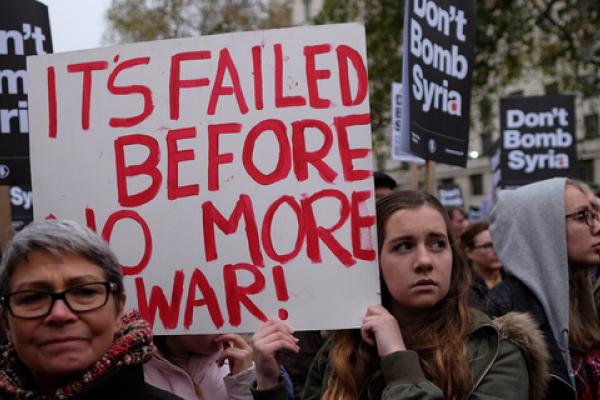THE PEACE MOVEMENT needs a stronger response to the threat posed by the Islamic State in Iraq and Syria. It is not enough merely to oppose deepening U.S. military involvement. We must also identify viable diplomatic and political options for countering the ISIS danger and reducing violence in the region.
President Obama has said there is no military solution to the crisis in Iraq, but his administration has relied heavily on bombing as its main response to ISIS. Since August, the United States and about a dozen other states have launched more than 1,900 air strikes against ISIS and militant groups in Iraq and Syria. Approximately 80 percent of the strikes have been conducted by U.S. forces, mostly jet fighters but also armed drones. The strikes have had the effect of halting further ISIS encroachments into Iraq and have enabled Kurdish fighters to regain some ground in the northern part of Iraq. In Syria, however, ISIS reportedly has continued to gain ground despite the U.S.-led attacks.
U.S. military involvement in Iraq and Syria is having unintended effects that could make matters worse. Battling the United States gives ISIS a transcendent objective beyond its political agenda in Iraq and Syria and distracts local attention from its brutal policies. It allows ISIS to portray itself as the victim and to claim that it is defending Islam from Western attack. After the start of airstrikes in August, support for the group increased. The strikes in Syria have also targeted the al Nusra Front and have generated pressure for rival groups to close ranks. Unlike al Qaeda, ISIS has not declared war on the United States, but it may now rethink its strategic focus and plan attacks on the “far enemy,” to use al Qaeda’s term.
Read the Full Article

